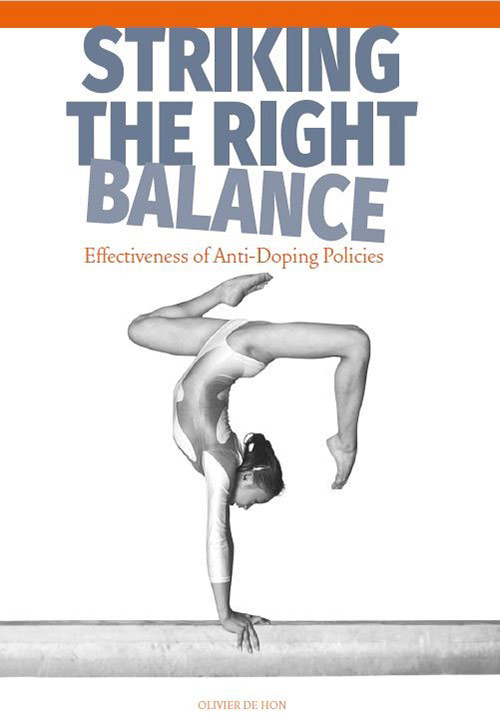The scientific activities of the Doping Authority consists of the following:
- a continuous survey of the scientific literature based on the identification of doping-related relevance;
- conducting and initiating research that serves the purposes of the national and international anti-doping policy; and
- the dissemination of scientific doping expertise both inside and outside the organisation.
Survey of scientific literature
To ensure it is informed about the latest developments, the Doping Authority keeps a close eye on new publications of doping-related scientific literature and saves copies of the relevant articles in its archives. Just over 130 relevant articles were added to these archives in 2016. All the articles are available in digital format and the most important are posted on the website www.doping.nl. In addition, a network with a range of scientists is constantly being maintained in order to keep up-to-date with the latest developments in all sorts of areas relevant to doping (Haematology, Cardiology, Endocrinology, Physiology, Sociology, Health Education, Ethics, Sports Medicine, Gene Therapy and Detection/analysis).
We acted as referees on three occasions for peer-reviewed scientific journals. In addition, we supervised, and assessed the work of, two students who looked in greater depth at a doping topic as a part of their Forensic Chemistry course at the University of Amsterdam.
The information from the available literature is actively distributed and serves as a basis for internal advice for the Enforcement & Investigations and Prevention departments, the legal officer (in the context of specific doping cases) and the CEO (for, among other things, his contacts with the press). This information is also used to answer specific scientific questions from people outside the organisation such as doctors, lawyers, journalists, students and other interested parties.
Scientific research
The doctorate thesis 'Striking the right balance - effectiveness of anti-doping policies' was successfully defended at Utrecht University in November 2016. It was the culmination of several years of research looking at the effectiveness of doping policy. The promotor was Maarten van Bottenburg, Professor of Sports Development. The thesis concluded that this important aspect of the national and international policy has received too little attention in recent years but that there are opportunities to assess the policy in both quantitative and qualitative terms. The thesis can be found here.

Other scientific affairs
There is a working party for exchanging experiences with seven other scientific members of staff working for the national anti-doping organisations of Switzerland, Norway, Denmark, Great Britain, Germany, the United States, and New Zealand. There are periodical telephone meetings about ongoing studies and specific scientific doping issues. There were three meetings in 2016. The chair revolves at each meeting.
Endocrinologist Pim de Ronde has set up a polyclinic in the Spaarne hospital in Haarlem (the former Kennemer Gasthuis) targeting people with health problems caused by anabolic steroids. The Doping Authority has an advisory role. The polyclinic continued work in 2016 on a longitudinal study in which 100 users of (among other things) anabolic steroids will be studied during and after their course of steroids. The study, which is known as the HAARLEM study (health risks of anabolic androgen steroid use by male amateur athletes), is primarily funded by private sources from the Spaarne hospital and it is expected to last one year.
The Doping Authority also acts as an advisor for a scientific project in which marathon runners will receive support in their efforts to run this distance in less than two hours (see www.sub2hrs.com), for the British nutritional supplements testing system, Informed Sport, of the LGC company and for the US cycling Association USA Cycling.
A company from Leiden, CHDR, has conducted a study of the performance-enhancing and health-related effects of EPO use and, once again, the Doping Authority played an advisory role and helped actively in the search for well-trained trial subjects who may not participate in competitions for a longer period of time. Another advisory role focuses on a study of sewage water for the presence of prohibited substances conducted by a company from Utrecht, KWR Water Cycle Research Institute. Finally, we participated in a study by NOC*NSF of the risks of clenbuterol contamination in meat for the consumer market in some countries outside Europe.
As in previous years, we engaged in regular consultations with the Pharmaceuticals and Medical Technology directorate of the Ministry of Health, Welfare and Sport about counterfeit medical products. In a number of separate meetings, we also provided input for the discussion about the possibility of establishing a reporting centre for health problems caused by the use of fake medicines. Doping products are always prominent in this category and a reporting centre of this kind would be one way of implementing the recommendations of the Health Council's report on doping from 2010.
Further steps were made with respect to the survey of health effects that have actually been experienced as a result of the use of the prohibited substances. It emerged that this long-held wish was also shared by the National Institute for Public Health and the Environment (RIVM) and the Sport Knowledge Centre. The Doping Authority participates in these consultations. This work also fits in with recommendations made in the past by the Dutch Health Council (2010).
Finally, the Doping Authority visited four scientific conferences: 'Cooperation between NADOs and WADA Accredited Laboratories: How to Improve Testing' (February in Bonn), the 15th USADA Symposium entitled 'Anti-Doping Science - Recovery, Repair, and Regeneration: From Steroids to Stem Cells' (October in Seattle), the 7th Sports Research Day (November in Groningen) and the 13th Sports Medical Science Annual Conference of the Dutch Society for Sports Medicine (November in Ermelo). We participated in discussions about doping in Eastbourne (England) for the Cycling Weekly magazine and in Groningen at the local Kenniscafé.